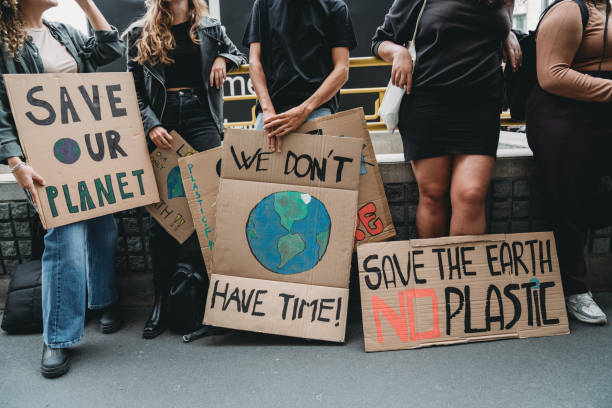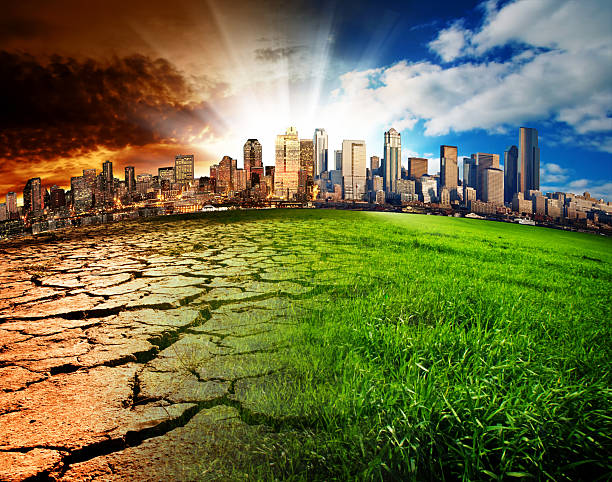Climate change is one of the most pressing challenges facing humanity today. The consequences of global warming, such as rising sea levels, extreme weather events, and loss of biodiversity, are already being felt across the globe. While climate change is a complex issue requiring collective action at the governmental and international levels, individuals also play a crucial role in combating it.
Taking responsibility for our actions and making sustainable choices in our daily lives can collectively make a significant impact in the fight against climate change. In this article, we will explore the importance of individual responsibility in addressing climate change and the practical steps that individuals can take to contribute to a more sustainable future.
Understanding Individual Impact
The first step in assuming individual responsibility for climate change is recognizing the impact of our actions on the environment. While some may feel that their individual choices are insignificant compared to larger industrial emissions, the cumulative effect of millions of people making small changes can be substantial.
Personal decisions about energy consumption, transportation, diet, and consumption habits all contribute to carbon emissions and other greenhouse gasses that drive climate change.
Reducing Carbon Footprint
A carbon footprint is a measure of the amount of greenhouse gasses, primarily carbon dioxide, emitted as a result of individual activities. Reducing our carbon footprint is essential for mitigating climate change.
There are several ways individuals can achieve this:
Energy Efficiency: Emphasize energy-efficient practices in daily life, such as using LED bulbs, turning off lights and electronics when not in use, and unplugging chargers. Energy-efficient appliances and home insulation can also reduce energy consumption.
Renewable Energy: Transition to renewable energy sources like solar, wind, or geothermal power for home and transportation needs. Many regions offer incentives and options for purchasing renewable energy.
Sustainable Transportation: Opt for public transportation, carpooling, cycling, or walking whenever possible. If owning a vehicle is necessary, consider choosing an electric or hybrid vehicle.
Reduce, Reuse, Recycle: Follow the mantra of reducing waste by consuming consciously, reusing items instead of buying new ones, and recycling materials that can be processed into new products.

Image credit: iStock
Sustainable Diet: Adopt a more plant-based diet, as animal agriculture is a significant source of greenhouse gas emissions. Reducing meat consumption and supporting local, organic, and sustainably sourced food can make a difference.
Advocating for Change
Individual responsibility goes beyond personal actions; it also involves advocating for change at a broader level. Engaging in local and global climate initiatives and supporting policies that prioritize sustainability and climate action is vital. This can include:
Voting: Exercise your right to vote for leaders who prioritize climate action and support policies aimed at reducing greenhouse gas emissions and promoting sustainable practices.
Community Engagement: Participate in local environmental groups, clean-up initiatives, and climate awareness events to promote community-based solutions and inspire others to take action.
Consumer Choices: Support companies that prioritize sustainability and environmentally friendly practices. By choosing eco-conscious products and services, consumers can encourage businesses to adopt more sustainable practices.
Education and Awareness: Raise awareness about climate change and its impacts by sharing knowledge and information with family, friends, and social networks. By encouraging open conversations, we can inspire others to take action.
Carbon Offsetting: For unavoidable emissions, consider carbon offsetting initiatives. These programs invest in projects that reduce or capture greenhouse gas emissions, helping to offset an individual’s carbon footprint.
Building Resilience
As the effects of climate change continue to unfold, it is essential to build resilience in our communities and adapt to a changing climate. Individuals can take steps to prepare for climate impacts, such as extreme weather events through the following ways;
Emergency Preparedness: Develop emergency plans and kits to ensure the safety and well-being of yourself and your family during extreme weather events.
Water Conservation: Implement water conservation practices, such as collecting rainwater, fixing leaks, and using water-efficient appliances, to ensure access to clean water in times of water scarcity.
Biodiversity Preservation: Support local conservation efforts and initiatives that protect biodiversity and natural ecosystems. Biodiversity plays a vital role in enhancing ecological resilience.

Sustainable Agriculture: Encourage and support local farmers and practices that promote sustainable agriculture and reduce the vulnerability of food systems to climate impacts.
Conclusion
Individual responsibility in the fight against climate change is a powerful and necessary aspect of the larger effort to address this global challenge. By understanding the impact of our actions, reducing our carbon footprint, advocating for change, and building resilience, individuals can collectively contribute to a more sustainable and climate-friendly future.
While systemic changes and governmental policies are critical, individual actions can serve as a catalyst for broader transformation. By embracing sustainability in our daily lives, we send a message to industries and policymakers that climate action matters to us.
Ultimately, the collective efforts of individuals, communities, businesses, and governments are essential in safeguarding the planet for future generations and ensuring a sustainable and thriving future for all.
Read also: Best Tips to Incorporate Exercise into a Busy Lifestyle